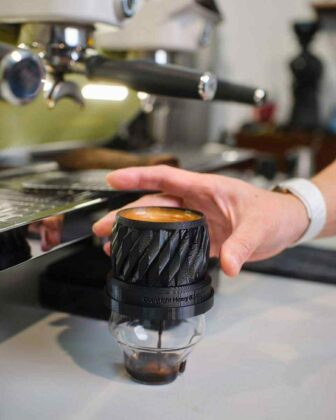Okay, that was some relief for a change.
Malacañang, in a meeting of the Legislative-Executive Development Advisory Council (LEDAC) last Tuesday, asked leaders of both chambers of Congress to prioritize for action four bills deemed key to fixing a system that has allowed graft and corruption to flourish, namely:
• a measure that will define political dynasties to ban;
• one that will make sure that only those genuinely representing marginalized/underserved sectors are accredited for party-list elections;
• another that will institutionalize public finance transparency and accountability;
• and one that would set up a new body that will be stronger than the currently handicapped (by lack of funds and of powers) Independent Commission for Infrastructure, or ICI, in investigating anomalies in all government infrastructure projects (not just those for flood mitigation/control).1
HMMM…
I don’t know if according such a priority would be enough to ensure the approval of any of these bills in the remaining session week which lawmakers have till they adjourn for the holidays on Dec. 19 (the session reconvenes to run from Jan. 19 to March 20, before a March 21 to May 3 break, then resumes on May 4 to June 5 before closing the first regular session of the 20th Congress).2
To be sure, there are two more regular sessions left till mid 2028 to approve them under this administration — so there’s enough time for Congress to act on these measures, which the President could claim among his lega-cies when he steps down.
Still, some observers immediately asked why Malacañang waited three years to push these difficult reforms. Why didn’t it do so when its political capital was high in the beginning — thus, ensuring better chances of legislative approval — and not as eroded as it is today?
Better late than never, some may say.
But even more so: why send mixed signals? If the President truly wanted to push these reforms, why didn’t he go all the way by certifying them as “urgent”? Such a certification — indicated in a formal letter sent to both the Senate Pres-ident and the Speaker of the House of Representatives — would enable Congress to cut the gap of days required between second- and third-reading approval, and approve measures concerned successively in second and third reading with-in a day. (Much in the same way that we ask why the ICI was left without sufficient funding and powers if it was expected to do its job properly).
Did that LEDAC meeting decide that it would be prudent for the President not to certify urgency — and so avoid the risk of humiliation — since neither Congressional leader could assure support for approval of these contentious reforms (considering, among others, that an estimated 80% of House district seats are occupied by members of political dynasties3)?
But at least these are some of the bills needed to make sure that anti-corruption efforts are sustained beyond merely jailing those most guilty (and not just small fry like Public Works officials and contractors).
It remains to be seen if Congress will act on them at all (on occasion, lawmakers have turned a deaf ear to the President when they perceived their vested interests threatened), or else will dilute these reforms to the point of making the resulting laws inutile — just recall what happened to Republic Act No. 7941, which established the otherwise well-intentioned party-list representation system 30 years ago.
Noticeably missing from LEDAC’s list, of course, is that long-desired measure to lift the secrecy on bank accounts, needed to make it easier to track illicit money flows (a proposal more than two-decades-old now, but towards which most lawmakers since at least 2004 have been allergic), as well as an encompassing freedom of information law.
IMPERATIVE
Credible steps to recover flagging consumer and business confidence in public governance — seen as partly to blame for state underspending that led to the country’s four-year-low 4% gross domestic product (GDP) growth in the third quarter, or Q3 (and January-September’s below-target 5%), together with the 45-day public works ban ahead of the May midterm elections — are seen as key to arresting the current drop in foreign direct investments (-40.5% year on year to $494 million in August, and -22.5% annually to $5.2 billion in January-August)4 and pushing overall economic growth back on track.
Key to boosting confidence is a clear anti-corruption commitment, especially demonstrated by putting in place governance reforms that will make such crimes more difficult to commit from here on in.
In a presentation last Tuesday of their latest biannual Philippine Economic Update, World Bank officials noted that “domestic drivers” have come to the fore as key risks to the country’s macro-fiscal outlook since the third quarter. It is now “[c]ritical to accelerate governance and institutional reforms to restore confidence, fiscal reforms to ensure fiscal consolidation is achieved without sacrificing long-term growth, and structural reforms to support investment and job creation,” according to the presentation.5
It particularly warned that “[h]eightened perceptions of governance risks could erode investor confidence, delay public investment execution, and weaken growth… making it ever more important that the Philippines double down on domes-tic reforms.” Such reforms — besides investors’ long-standing plea for the government to further cut the cost of doing business — include “[g]overnance and institutional reforms to restore confidence, and increase the growth and jobs impacts of public spending.”
The World Bank, as well as other international lenders and organizations have lately been cutting their Philippine growth projections to below the government’s already-tempered targets of 5.5% to 6.5% this year, 6% to 7% in 2026-2028 in the wake of dismal third-quarter economic expansion.
And as I write this piece on Wednesday morning, the Asian Development Bank (ADB) released its latest projections in the December issue of its Asian Development Outlook, showing higher Southeast Asian GDP growth forecasts for 2025 and 2026, driven mainly by “strong Q3 performance in Indonesia, Malaysia, Singapore, and Vietnam, steady growth in Thailand” but capped by “lower growth prospects for the Philippines due to weak infrastructure spending and investiga-tions of publicly funded projects, and natural hazards.”6
While ADB’s Philippine GDP growth projections remain the second-best in Southeast Asia after Vietnam (both slower only than Asia-Pacific topnotcher India), and still outpace the Asia-Pacific region on the whole, one can just im-agine if we could best even Vietnam (as we have on very rare occasions before) should we make substantial, sustained inroads vs. corruption once and for all.
WHEN THE MILITARY SNEEZES…
Let me now turn to one specter that rears its ugly head every time an administration’s popularity declines and political elites engage in a protracred public squabble, namely: noise about a brewing military intervention in government.
In the past administration, such noise arose amid news that the President then made rounds of major military camps and increased soldiers’ salaries (by such amounts that even enlisted personnel I have spoken with recently ex-pressed gratitude to him).
In this government, the same rumors began after the former Finance chief (now Executive Secretary Ralph G. Recto) said in August that moves to reform the pension system for military and uniformed personnel (MUP) had been shelved “for the remainder of the term [of this administration?].”7 That, after his predecessor (now central bank Monetary Board member Benjamin E. Diokno) had warned in 2023 that the government faced “fiscal collapse” by maintaining the sys-tem in its current form without regular contributions from MUPs to fund their pensions. Thus, the government in August appeared to have turned its back on a key, but politically risky, fiscal reform.
Such talks picked up when Senate President Pro Tempore Panfilo M. Lacson said late last month that he had rejected an offer to form part of a civil-military junta8. (Good for him, because in a situation where only one party holds the gun, guess who weilds the real power?)
This administration afterwards seemed to find a new way forward acceptable to the troops, as it packaged MUP pension review by an inter-agency technical working group with a phased 15% hike in base pay between Janu-ary next year and 2028.9
NOT THAT SIMPLE
Anyone interested in military coup dynamics has a slew of literature to peruse, beginning with Edward Luttwak’s seminal 1968 work, Coup d’Etat: A Practical Handbook and on to at least 10 other studies well into the 2000s that iden-tify conditions that make a coup possible: from eroded political authority, to a government preoccupied with a serious crisis, an alienated military establishment (i.e., politicized promotions, military sees itself as a “guardian” of na-tional stability, etc.), to a disillusioned citizenry that is unlikely to defend the regime, and a history of previous coups, etc.
While a few of these conditions may exist today, one officer — who had co-founded the then virulent Young Officer’s Union (YOU), which nearly topped the government in the late 1980s, and then went on to earn top star rank — belittled current signals in a recent chat.
He noted, for instance, that the recently ordered hike in military pay actually dovetails a similar earlier increase in civil service wages. “Actually, there was already a plan for this increase way before this flood control controversy erupted so that there will be equity between civilian and military wages,” the officer said. “So, it does not follow that military pay hike is a response to coup rumors.”
The problem was in the timing of the announcement. “It’s a strategic communication issue in which timing is crucial,” he said. “Making a mistake there would be tantamount to self-flagellation… so, now, you have all this talk about the government buying soldiers’ loyalty.”
Noting that business turns understandably jittery every time coup rumors surface, he prescribed more frequent dialogues between them and the military “so that you do not just fall for propaganda and, instead, see the real score with the military.”
A REASON TO BITCH
Not that soldiers are immune from complaints, this officer said. “Yes, of course, I have heard [rants],” he admitted. “But remember that soldiers are citizens like you and me: their gripes are a reflection of society’s mood.”
“But, personally, I have not heard anything serious that would graduate into actions like what we did in the 1980s,” he continued.
“Soldiers will always find a reason to bitch. But acting on that is another matter.”
Obvious in current destabilization tries, he noted, is the inability of perpetrators to attract support from outside their immediate circle and the lack of a mobilization platform as organized as the Reform the Armed Forces Movement/Rebolusyonaryong Alyansang Makabansa and its splinter YOU in the 1980s.
Otherwise, “[b]aka nung September [anti-corruption rally] pa lang, marami nang sumama eh [perhaps back during September many others would have joined them]. Four to five months since July [when President Ferdinand “Bongbong” R. Marcos, Jr. railed against corruption in his mid-term State of the Nation Address], hindi makausad [they could not gain wider support].”
“In fact, they have become pariah among the retired [hence, the end-November statement of support for the government from the Association of General and Flag Officers10], more so among those in active service.”
Any coup, he explained, needs a “blasting cap” to set off an explosion. But in this case, he noted, “basa eh” (the blasting cap is wet).
Come to think of it, why haven’t the handful of those who called for the withdrawal of military support from the government been arrested for inciting people to sedition? Would any one of us be able to espouse the same stand without courting arrest? That is different from calling for the President to resign, which is a Constitutional mode of power transition.
Still, the government cannot be complacent, since soldiers — like their civilian counterparts — are watching to see if the government will jail those most guilty of corruption in flood control projects since “kitang-kita naman kung sinu-sino ang pinaka may sala [it is plain to see who is most at fault].”
“A professional military follows a professional civilian leadership,” the officer said.
“We need to improve mutual confidence.”
1https://tinyurl.com/25nzddha
2https://docs.congress.hrep.online/legisdocs/basic_20/HCR0002.pdf
3https://tinyurl.com/23yhkqwx
4https://tinyurl.com/267xvmr6
5https://tinyurl.com/2zfzn75c
6https://www.adb.org/sites/default/files/publication/1102431/ado-december-2025.pdf
7https://tinyurl.com/2yctph87
8https://tinyurl.com/2axk4qx7
9https://tinyurl.com/27l7xewz
10https://tinyurl.com/2yr88eav
Wilfredo G. Reyes was editor-in-chief of BusinessWorld from 2020 through 2023.

















